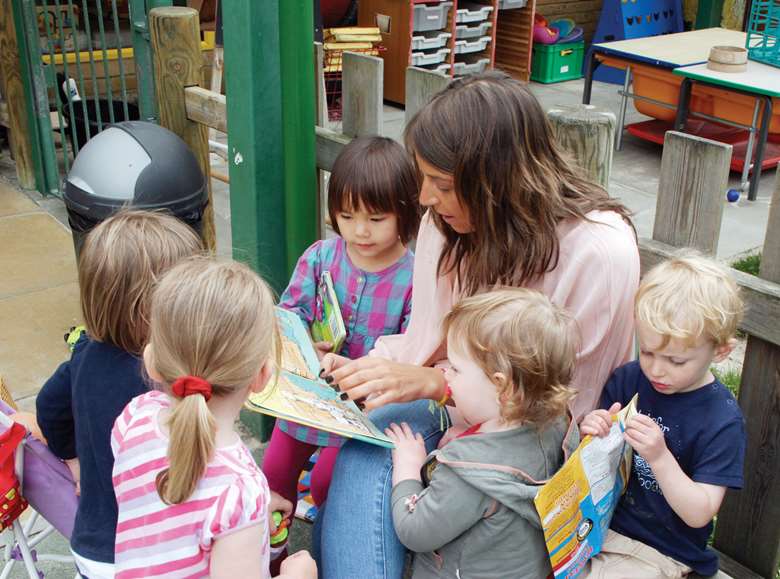Rise in proportion of 30-hour childcare applications approved
Joe Lepper
Friday, September 28, 2018
The proportion of parents to have their offer of 30 hours funded childcare approved has risen markedly over the last year, government figures show.

Statistics published by the Department for Education reveal that 88 per cent of funded childcare codes have been "validated" for the autumn term, compared with 71 per cent in September 2017.
Despite the rise, early years groups say there is still a shortage of funded places in many areas of the country.
The 30-hour entitlement for working parents of three-and four-year-olds launched in September 2017, and these latest figures offer the first year-on-year comparison at the proportion of codes being validated.
In order to use their 30 hours a week of funded childcare, parents must supply a code to their provider to get validated.
A regional breakdown of the figures shows there are widespread local differences in the number of codes being validated - in Cheshire East and Calderdale all codes have been validated, but in Southwark the figure is just 55 per cent and Milton Keynes 58 per cent.
The Professional Association for Childcare and Early Years (Pacey) said it is disappointing that 12 per cent of eligibility codes have still not been validated and suggests that this may be because parents are facing a struggle to find places.
Earlier this month, a Pacey survey of more than 1,600 nurseries found that four out of 10 were fearful of closure due to the introduction of the 30 hours scheme and lack of government funding.
"It is concerning that several weeks into the autumn term, 12 per cent of eligibility codes have yet to be validated, suggesting that thousands of families are struggling to secure a 30 hours place," said Pacey research and policy manager Susanna Kalitowski.
"Recent Pacey research found that 64 per cent of providers think the hourly rate paid by their local authority is too low.
"We know that many providers have been reconsidering whether it is sustainable to continue to offer 30 hours in the future, and we may be seeing the knock-on effect of this."
Kalitowski added that the government needs to urgently increase funding levels and establish a formal annual review, so that funding keeps pace with inflation.
Neil Leitch, chief executive of the Pre-school Learning Alliance, said the figures were "unhelpful" because they only include the number of codes validated not taken up. This "masks the significant local variations in availability of places; and reveals nothing about how many of places are truly ‘free' for parents - not to mention the huge financial strain the policy is causing for providers", he added.
The figures also show a drop in the number of codes being issued in September his year, compared to three months ago.
While 379,662 codes were issued in June the figure for the autumn term is 254,136.
The DfE says that the latest figures only include children who were three-years-old at 31 August 2018 and do not include those aged four on that date, as they are likely to be ineligible for 30 hours as they will be taking up places in reception classes in school.
Last month, children's minister Nadhim Zahawi said that more than 340,000 children have benefitted from a 30 hours place in its first year.




